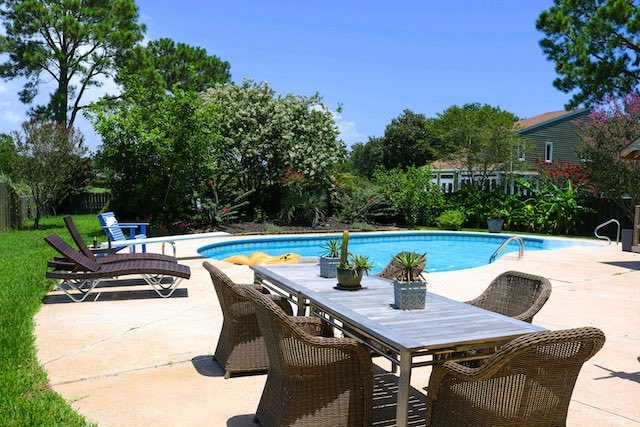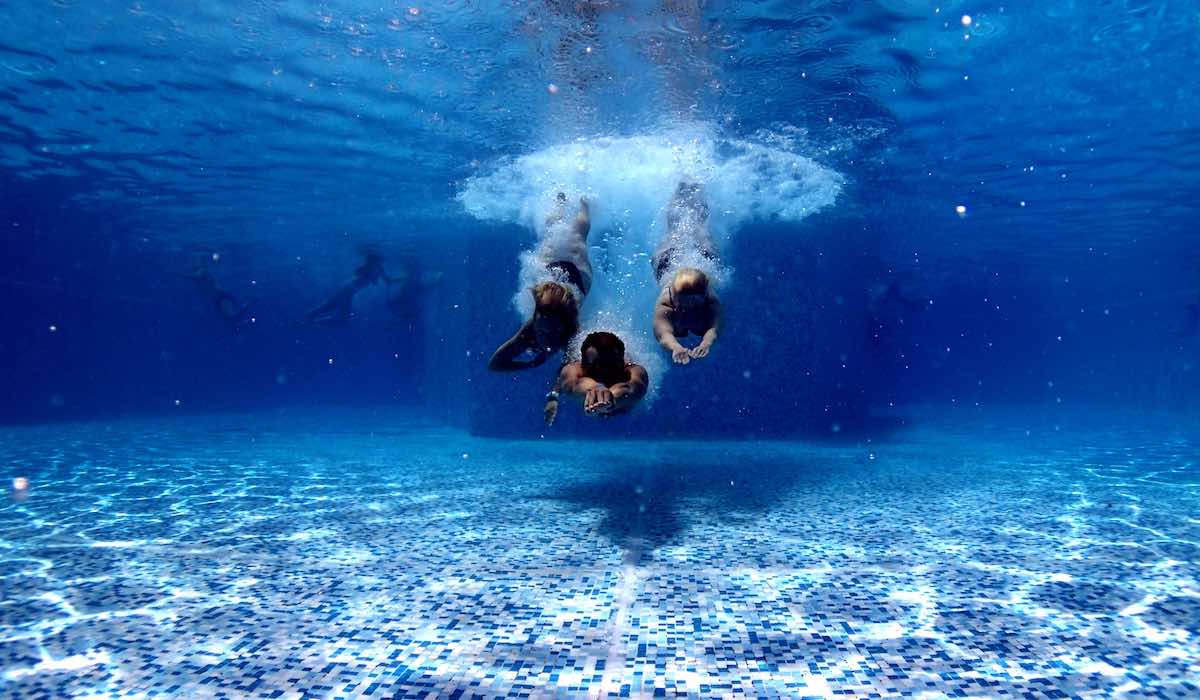Alright, folks, let me break it down for ya. When it comes to heating your swimming pool, you got two options: heat pump or gas heater. Now, if you wanna squeeze out a few extra months of swimming bliss, the heat pump is your buddy. Depending on where you live, it can extend your swim season by a solid 2-3 months. That’s not too shabby!
But hold on a sec, because the gas heater has some tricks up its sleeve too. It’s the one that’ll let you dive into that pool all year long! Yup, while the heat pump might tap out during wintertime, the gas heater keeps chugging along like a champ.
And here’s another perk for ya: when you turn off that gas heater, it still keeps your pool cozy warm for longer. It’s like having an extra shot of speed when it comes to getting things toasty.
So there you have it! Heat pump gives you a few bonus months of swimming fun, but if you’re craving year-round dives and want faster heating action after turning off the system, then go with the trusty ol’ gas heater.
You’re welcome! Dive in and enjoy that warm water!
Benefits of a Heat Pump for Swimming Pool Heating
- Extended swimming season: A heat pump can extend your swimming season by 2-3 months in most locations. By efficiently extracting heat from the air or ground and transferring it to the pool water, a heat pump can keep your pool comfortably warm even during cooler months.
- Location-dependent efficiency: Heat pumps are highly efficient in moderate climates but may experience reduced performance in colder regions. However, advancements in technology have improved their efficiency even in colder climates.
- Cost-effective operation: Heat pumps are known for their energy-efficient operation. They require less energy input compared to other heating systems while still providing effective pool heating.
Advantages of a Gas Heater for Swimming Pool Heating
- Year-round swimming capability: Unlike heat pumps that may not be suitable for year-round use in colder climates, gas heaters enable you to swim throughout the year by quickly raising the water temperature regardless of outdoor conditions.
- Faster pool heating after being turned off: Gas heaters have an advantage when it comes to speedy heat-up times after being turned off or when initially warming up cold water.
- Efficient heating performance: Gas heaters provide consistent and reliable heating performance without being affected by outside temperatures.
Comparison of Heating Efficiency between Heat Pumps and Gas Heaters
You know, when it comes to keeping your pool toasty, there are a couple of ways to go about it. The main contenders on the field are usually heat pumps and gas heaters. So, let’s dive into the nitty-gritty, shall we?
First up, let’s tackle the question of energy consumption. Now, I’ve been around pools enough to know that energy efficiency is a big deal. Here’s the thing: heat pumps generally boast a higher coefficient of performance (COP) than gas heaters, which makes them a more energy-efficient choice.
But, to be honest, the overall energy consumption isn’t just about the equipment; it’s also about your pool’s size, how warm you want it, and the local climate.
Next, let’s chat about our dear old mother earth. It’s no secret that we’re trying to keep our carbon footprints as small as possible these days. Well, in the green corner, heat pumps have a bit of an edge.
They draw on renewable energy sources like air or ground heat, whereas gas heaters… well, they burn fuel. This means they’re producing greenhouse gas emissions, which isn’t great for the planet.
Lastly, we’ve got to talk about money, right? I mean, we all love to save a few bucks. Now, gas heaters might win you over initially with their lower upfront costs.
However, when you take into account their higher energy consumption and the fickle nature of fuel prices, you might find yourself digging deeper into your pockets in the long run.
So, in the grand scheme of things, choosing between a heat pump and a gas heater isn’t just about the initial price tag or the speed at which they can warm up your pool. It’s about considering your energy use, your environmental impact, and the cost-effectiveness over time.
Our Pick: FibroPool Swimming Pool Heat Pump
Utilizing high-pressure differential compressors and titanium heat exchangers, FibroPool heat pumps are meticulously designed to be the most energy efficient in their class. You can rest comfortably knowing your family will enjoy years of late season swimming without feeling a squeeze on your electric bill
Considerations for Choosing the Right Heating System for Your Pool

- Climate conditions and average temperatures in your area: If you live in a colder climate with longer winters, a gas heater might be a better choice for year-round swimming. In milder climates, a heat pump can extend your swimming season cost-effectively.
- Usage patterns and swimming frequency: If you frequently use your pool throughout the year or require quick heating after being turned off, a gas heater’s fast heating capability might be more suitable.
- Budgetary constraints and long-term costs: Consider both upfront installation costs and ongoing operational expenses when comparing heat pumps and gas heaters.
Installation, Maintenance, and Operational Costs of Heat Pumps vs Gas Heaters
Let’s take a deep dive into another important pool topic: the costs and maintenance of heat pumps versus gas heaters. It’s quite a ride, so fasten your seatbelts!
Firstly, we should take a look at the initial hit to your wallet. Gas heaters, with their simpler technology, usually come with a more appealing upfront price tag compared to heat pumps. However, let’s not forget – while the initial expense is important, you need to consider the long-term operational costs, too.
Secondly, let’s take a peek under the hood and discuss ongoing maintenance. Heat pumps are generally less demanding on this front, mostly because they have fewer mechanical components and no combustion processes. That means less time spent tinkering with your heater and more time for you to enjoy your pool!
Finally, we need to chat about energy costs. You know, those pesky monthly bills. Gas prices can be a bit of a rollercoaster, going up and down over time. On the other hand, the operating costs of heat pumps tend to be more predictable. Their efficient energy usage makes them a steadier ride in terms of cost.
So, when weighing up the options between a heat pump and a gas heater, remember it’s not just about the initial expense or the ongoing maintenance. It’s about taking a hard look at long-term energy costs, too. Remember, the best choice is one that suits your budget, your pool, and your peace of mind.
Factors Affecting the Performance of Heat Pumps and Gas Heaters in Pool Heating
- Weather conditions’ impact on heat pump efficiency: Extremely cold weather can reduce the efficiency of heat pumps, especially air-source units. However, advancements in technology have improved their performance even in colder climates.
- Fuel availability and pricing affecting gas heater performance: The availability and pricing of natural gas or propane can impact the operational costs and overall performance of gas heaters.
Choosing the Best Option: Heat Pump or Gas Heater?
If you’re dreaming of significantly longer summers spent splashing about, a heat pump might just be your best buddy. These nifty devices can be a more cost-effective choice for those looking to squeeze out a little more swim time each season.
Now, if you’re more of a year-round swimmer and outside temperatures aren’t going to stop you, then a gas heater might be the champion in your corner. With a gas heater, you’re given the flexibility to enjoy warm waters even when Jack Frost is nipping at your toes.
But what about efficiency? I mean, we all want to do our part to save energy, right? If that’s a priority for you, heat pumps really shine. Thanks to their higher coefficient of performance (COP), heat pumps are a pretty attractive option for those wanting to keep things green and efficient.
Of course, we can’t forget about budget. It’s always important to weigh both the upfront costs and those long-term operational expenses. Whether you lean towards a heat pump or a gas heater, remember to consider the full picture, including initial costs, maintenance, and energy usage over time.
So there you have it, friends. Depending on your swimming habits, your focus on energy efficiency, and your budget, either a heat pump or a gas heater could be your pool’s perfect match. Happy swimming!
Frequently Asked Questions about Heat Pump vs Gas Heater for Swimming Pool
A gas heater allows for year-round swimming due to its ability to quickly raise water temperature regardless of outdoor conditions.
Yes, a heat pump can extend your swimming season by 2-3 months depending on your location.
Yes, heat pumps have a lower carbon footprint compared to gas heaters as they utilize renewable energy sources for heating.
In Summary
Both heat pumps and gas heaters have their advantages and considerations when it comes to swimming pool heating.
The choice between the two will depend on factors such as your location, desired swimming season extension, usage patterns, budgetary constraints, and efficiency requirements.
By carefully evaluating these factors and considering the information provided in this blog post, you can make an informed decision that best suits your needs and preferences. Happy swimming!
